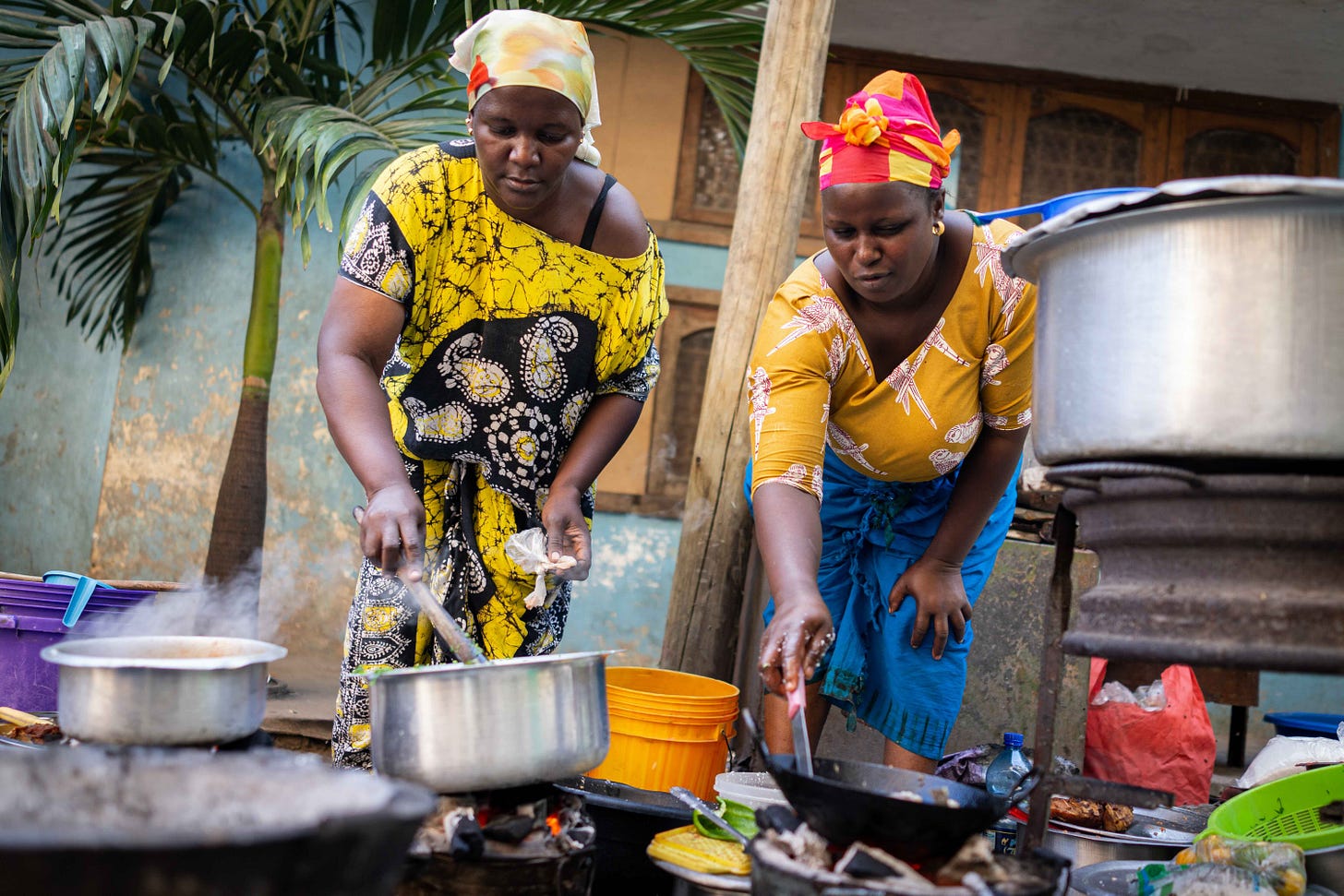
India’s rollback of SO₂ norms related to clean air targets draws criticism
A recent rollback of sulphur dioxide (SO₂) emissions standards by the government of India, is being viewed as a setback for the country’s progress on clean air, undermining efforts to tackle pollution-related health and economic impacts, according to several media reports.
The changes were made by the government in a notification on July 11, which now exempts as much as 80 percent of all thermal power plants in the country from installing technologies such as flue gas desulphurisation (FGD) and scrubbers, according to the report. The government has defended its decision, stating it was based on scientific tests, including those from IIT Delhi and the Central Pollution Control Board, and extensive stakeholder consultations.
Clean cooking for all by 2030 out of Africa’s reach, says IEA
In sub-Saharan Africa, meanwhile, nations are off-track to meet the UN’s 2030 clean cooking goal, with universal access realistically delayed to 2040 due to funding and population challenges, the International Energy Agency projects, according to Climate Change News. Only a small share of countries are set to provide clean cooking to all by 2050, underscoring the need for significantly increased investment and coordinated efforts.
EU and China reaffirm climate cooperation amidst US retreat
Meanwhile, the EU and China have released a joint statement renewing their commitment to climate action and green trade, Climate Change News reports. Despite global tensions and the US stepping back from international climate talks, both parties pledge deeper collaboration, aiming for more ambitious nationally determined contributions (NDCs) before COP30.
IDB launches $1bn Amazon bonds for conservation and green projects
And the Inter-American Development Bank (IDB) has initiated a $1b Amazon bond scheme to drive funding toward conservation and sustainable development projects in the Amazon region, Green Central Banking reports. The aim is to mobilize global investors for critical climate and biodiversity goals.
New net zero standard pushes banks to abandon fossil fuel finance
Staying with corporate finance for one more headline, a new standard released by Science Based Targets Initiative (SBTi), a leading evaluator of corporate climate targets, requires banks and investors to halt financing fossil fuel power projects, Climate Change News reports. This includes new coal projects now and for oil and gas expansion by 2030, in order to be aligned with a 1.5°C pathway. Over 130 financial institutions have signed up, signaling increased climate credibility requirements for the sector.
Avalanche Energy achieves key desktop fusion milestone
Avalanche Energy, a Seattle based nuclear fusion venture, recently operated its desktop fusion machine for hours at 300,000 volts, marking a leap toward practical, small-scale fusion, TechCrunch reports. The technology uses intense currents rather than powerful magnets, aiming for compact reactors generating up to several hundred kilowatts. Backed by a $10m grant for its FusionWERX facility, Avalanche targets profitability by 2028 through radioisotope sales and facility rentals.
Electra raises €433 million to boost EV charging network
Electra, an EV charging venture in Paris, secured up to €433m in green loans, surpassing €1b in total funding, the company said in a press release. This financing, led by top European banks, will accelerate the rollout of ultra-fast EV charging infrastructure across Europe, with a target of 2,200 stations by 2030. The loan demonstrates lender confidence in Electra’s business model and growth ambitions.
Northvolt attracts global bidders as 3,000 staff get comeback call
Northvolt, an advanced lithium-ion battery systems maker in Sweden, following its bankruptcy proceedings, is seeing interest from five international bidders to acquire the company, Norran reports. Over 3,000 former staff are being recalled as potential buyers evaluate assets in battery manufacturing and recycling, with the company pivotal to Europe’s clean-tech ambitions.
Makersite raises €60 million Series B for AI-powered product intelligence
Makersite, an AI-based supply chain tracking software provider in Stuttgart, Germany, has closed a €60m Series B round to scale its AI-driven product lifecycle platform, the company said in a press release. The funding will expand platform capabilities, deepen technology partnerships, and support global manufacturer clients in making supply chains safer, greener, and more efficient, with rapid adoption among top brands.
Sunsave secures $151 million to expand solar subscriptions
Sunsave, in the UK, raised $151m (£113m) in an oversubscribed round, split between debt and Series A equity, Mercom Capital reports. The funds will fuel the rollout of their subscription-based solar and battery solution, aiming to make clean home energy affordable without upfront costs for customers across England and Wales.
Energy Dome and Google partner for low-carbon storage breakthrough
And finally, Energy Dome, a CO2 battery tech venture in Milan, Italy, has teamed up with Google to advance low-carbon energy storage, focusing on scalable, cost-effective solutions, Renewable Energy Magazine reports. The collaboration aims to support renewable grid integration and help meet Google’s future clean energy and decarbonization targets.















Share this post